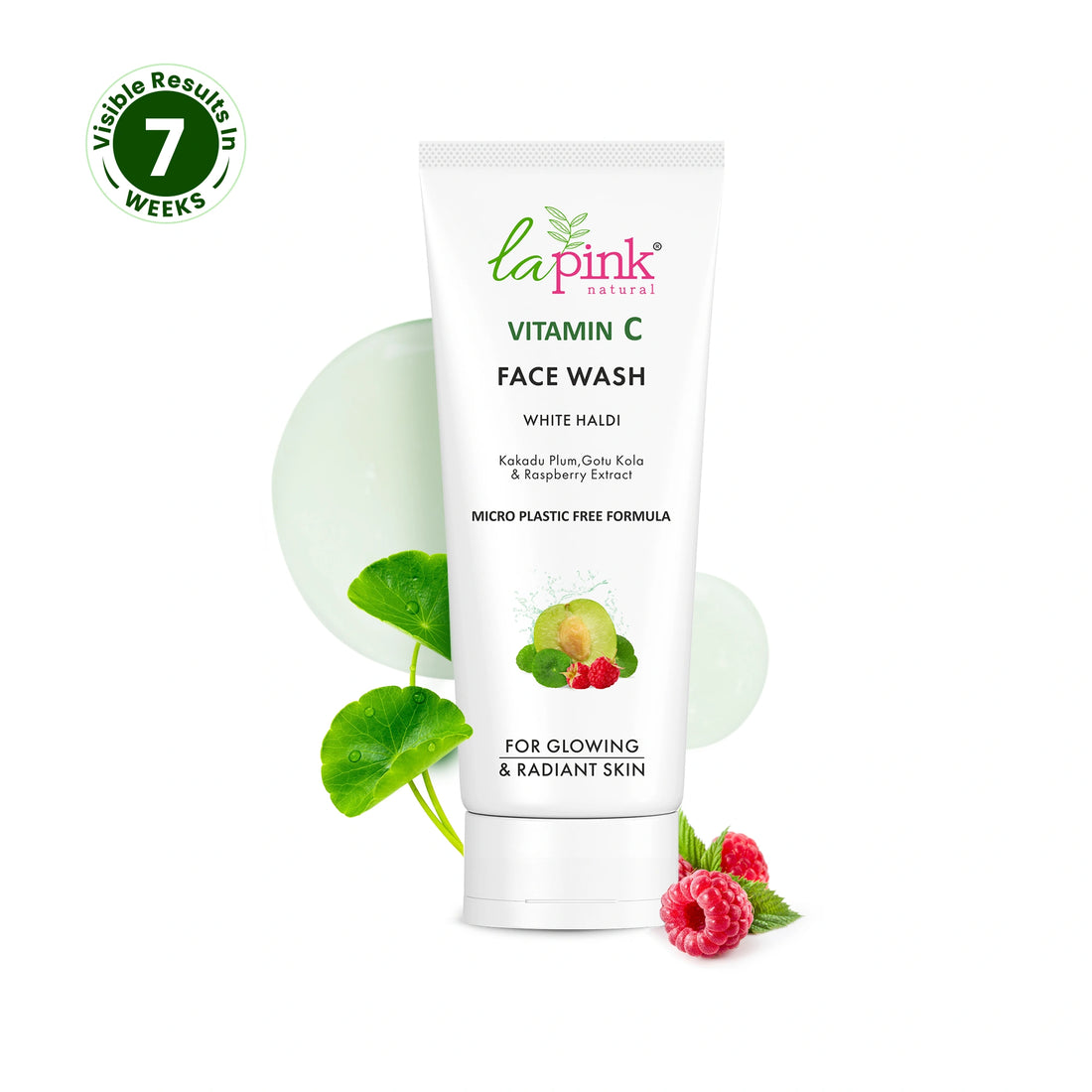Hyaluronic Acid
Did you know? Your skin has a water-reservoir. Well, that is what you can call Hyaluronic Acid in simple terms. Hyaluronic acid is produced naturally within our bodies. An effective humectant that attracts and retains adequate amount of moisture in the skin. The HA or Hyaluronic acid is important to keep our tissues lubricated, and prevent us from skin aging stressors. The skincare world worships Hyaluronic acid and thus, it is found in products like face washes, serums and moisturizers. It is scientifically backed and recommended by dermatologists for all skin types as it is non-toxic and has many hydrating properties.
Apart from retaining moisture in the skin, Hyaluronic acid is also popularly known to reduce the appearance of skin aging. It helps with skin elasticity and firmness by reducing fine lines and wrinkles and thereby, enhances skin texture. It is often paired with Vitamin C, Niacinamide, Licorice, etc. for morning and night time skin care routines.
Skincare Benefits of Hyaluronic Acid
One of the most trusted ingredients in skincare by dermatologists is Hyaluronic acid. It’s because it poses immense benefits. From hydration to rejuvenation, repair and glow, it does it all. Let us explore what are the benefits of Hyaluronic acid and what makes it a favorite among skincare enthusiasts below:
- Hydration: A study conducted in 2023 shows that oral or topical application of Hyaluronic acid has improved skin hydration and plumping. 1gm of Hyaluronic acid `can hold up to 6 litres of water, isn’t it fascinating? This itself makes it one of the most effective hydrating ingredients available in the skincare market. HA can penetrate into your skin easily and deliver moisture where it’s needed most.
- Improved Skin Protection: Since Hyaluronic acid holds moisture, it ultimately helps strengthen the skin protection layer against external pollutants, bacteria, and irritation. This helps soothe the skin and form a solid protective layer.
- Reduced Signs of Aging: Aging is mainly accelerated by dehydration in skin. HA replenishes the skin and helps reduce the appearance of fine lines and wrinkles. Since it has low molecular weight, HA has the ability to go deeper into the skin and target the aging compounds directly.
- Better Skin Texture and Elasticity: Studies show that regular usage of HA improves overall skin tone and texture. The moisture-binding properties in Hyaluronic acid help get better skin elasticity and makes skin smooth and supple.
- Accelerated Wound Healing: A report published in Science Direct in September 2024 shows that Hyaluronic acid helps in tissue regeneration and wound healing. It has the power to regulate inflammation levels. HA sends signals to the body to build more blood vessels in the damaged area, thus helping repair sun damage and acne disruption on skin.
- Calming and Soothing Properties: Since Hyaluronic Acid is hydrating and non-comedogenic in nature,it is suitable for sensitive and acne-prone skin. It helps soothe skin irritation and reduces redness. Therefore, many skincare products targeted towards sensitive and acne prone skin have this ingredient in the bank, no compromises.
Compatible with Other Ingredients: If you look closely at the ingredient list of skincare products these days, you will notice that Hyaluronic acid is well paired with active ingredients including Vitamin C, Retinol, Niacinamide, and Peptides. This is because it has the ability to work with these ingredients to boost hydration and reduce the drying properties of stronger actives added in the formulations.






































































